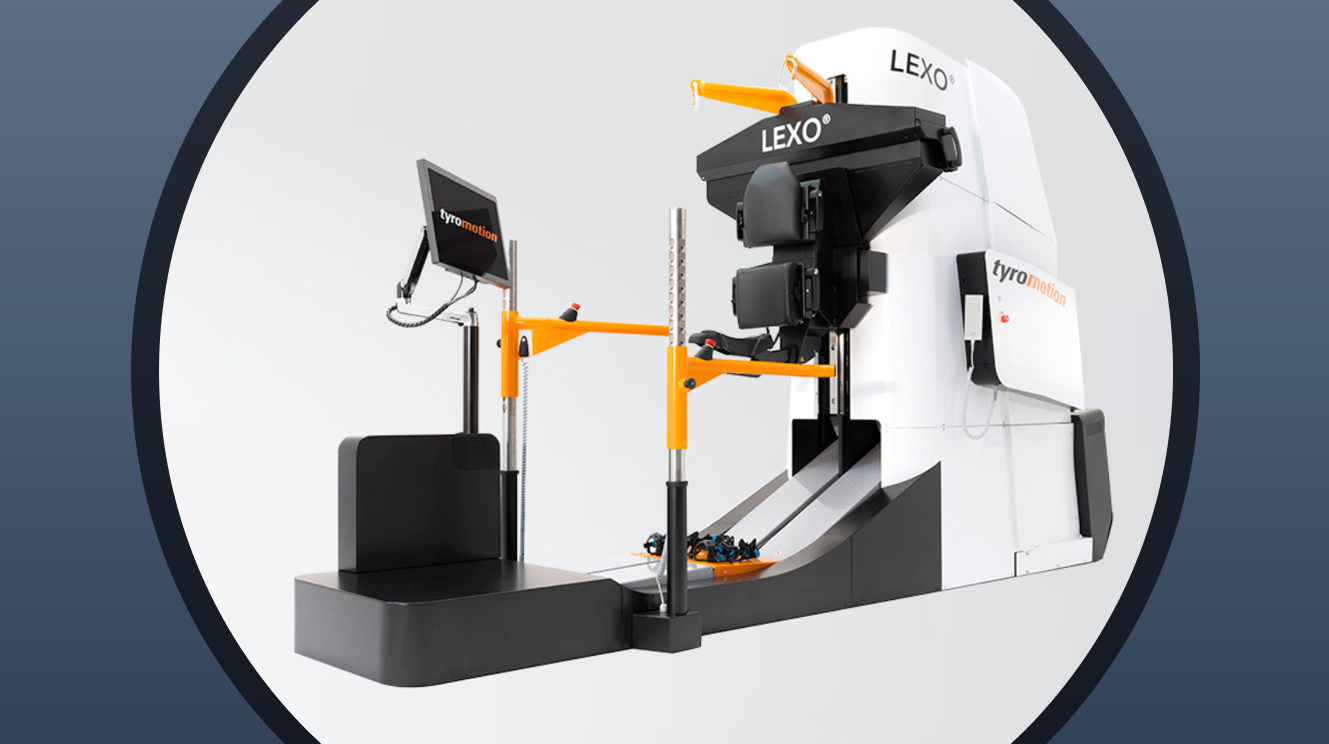News & Trends - MedTech & Diagnostics
New robot-assisted therapy launches in Australia

MedTech News: A new state-of-the art robotic gait rehabilitation therapy device launched in Australia on World Stroke Day.
The first of its kind equipment is being hailed a revolutionary game changer for over 60,000 Australians who suffer from a Stroke every year, as well as for people living with other neurological disabilities such as brain or spinal cord injury, Multiple Sclerosis, Parkinson’s, Hereditary Spastic Paraplegia, Cerebral Palsy and Functional Neurological Disorder (FND).
The LEXO works by helping to improve walking ability, speed and endurance more effectively through its individually adjustable end-effector gait training robot, combined with dynamic body weight support system. These features facilitate a natural walking pattern, provide sensory feedback and dynamic body weight support to assist with re-training gait. This means that the LEXO enables a more effective return to walking and at a higher quality.
NSW government provided special support for the LEXO to be allowed into Australia from Austria during COVID-19, with leading neurological rehabilitation and disability provider, Advance Rehab Centre in Artarmon, Sydney being the first rehabilitation centre in the world to purchase this device.
Melissa McConaghy, CEO of Advance Rehab Centre and Australian Physiotherapist of the Year 2019, said that during rehabilitation, patients need to be challenged at and beyond their individual capabilities. “Speed, support and gamification can be adjusted on the LEXO® to optimally drive the intensity and engagement of the therapy meaning much more effective results.”
“90% of Stroke survivors have some functional disability, with mobility being the major component. The inability to walk independently detracts from quality of life, individual dignity and leads to higher levels of dependence and possible re-admission to hospital. It can also bring about secondary complications such as Osteoporosis and heart disease,” Ms McConaghy said.
“The use of the robotic gait trainer in rehabilitation for people after Stroke and other neurological issues increases their chance of walking independently at the end of the intervention phase. Patients are motivated to reach their goals with various game-like exercises and can achieve up to five times more practice in the device than traditional over-ground training. Their increased level of activity influences the performance of the task, the gait quality and the speed,” she said.
People in the first three months after a Stroke and those who are not able to walk independently benefit most from the LEXO.
The Cochrane review – the highest standard in evidence-based health care – states that, “people who receive electromechanical-assisted gait training in combination with physiotherapy after Strokes are more likely to achieve independent walking than people who receive gait training without these devices.”
The LEXO allows therapists to focus on the patient and the actual therapy, which enhances staff efficiency and safety, leads to higher training intensity, more treatments per therapist and consistent, superior patient care.
Trent Zimmerman, Member for North Sydney, said the assistance that the LEXO device will provide to patients across NSW and Australia who are learning to walk again after a Stroke, spinal cord injuries and other neurological problems is invaluable.
“I wish Advance Rehab Centre every success with their important work improving patients’ daily skills, health and wellbeing,” Mr Zimmerman said.
The LEXO, only available at Advance Rehab Centre, is backed by a research partnership with Macquarie University.
Digital & Innovation

Medical drone to reduce health equity gaps in rural and remote Australia
A specialised medical drone which increases accessibility to essential health services such as pathology, medicines, and telehealth services in rural […]
MoreNews & Trends - Pharmaceuticals

We’ve spent more on healthcare, but it’s been worth it
Healthcare expenditure is surging, with Australia now allocating approximately one-tenth of its budget to this sector. This financial uptick prompts […]
MoreNews & Trends - Pharmaceuticals

New partnership to raise the bar in precision oncology in Queensland
Pharma News: The Australian Translational Genomics Centre (ATGC) is teaming up with non-profit research organisation Omico and the PrOSPeCT program […]
MoreNews & Trends - Biotechnology

AusBiotech appoints new CEO: Former Sanofi corporate affairs and sustainability leader takes the helm
Biotech News: AusBiotech, the nation’s leading industry body for the biotech sector, has named former leader at Sanofi, Rebekah Cassidy, […]
More